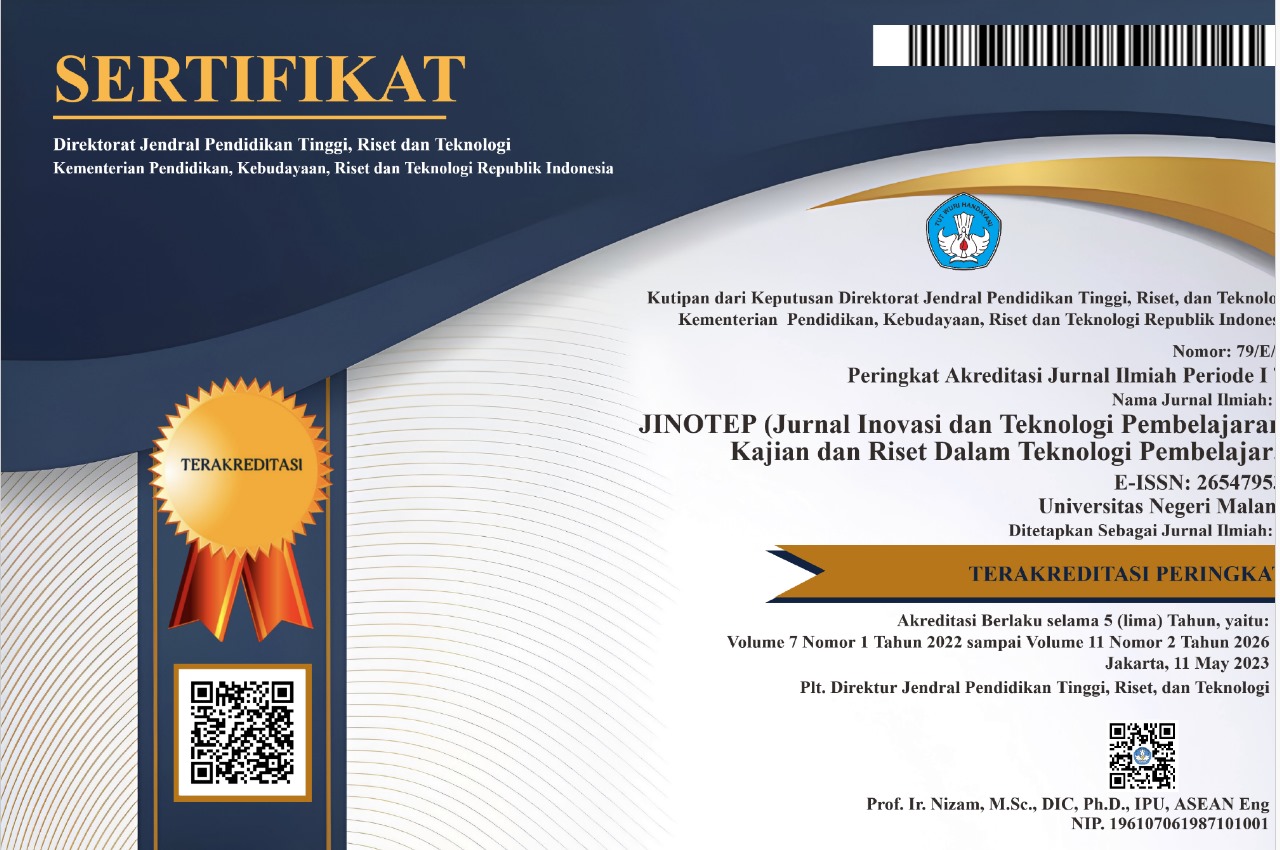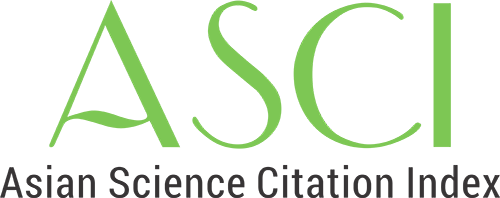An Innovative Method to Improve Teachers' Consideration Regarding Quality of Online Learning Using Reflective Thinking
Abstract
Abstrak: Studi deskriptif ini menginvestigasi bagaimana guru bahasa Inggris mempersepsikan diri mereka sebagai praktisi pemikiran reflektif selama pembelajaran online. Dua guru bahasa Inggris di SMAN 1 Sukasada yang telah mengajar selama hampir sepuluh tahun menanggapi kuesioner skala keterampilan mengajar reflektif yang berisi 20 pernyataan. Hasil data menunjukkan bahwa guru bahasa Inggris di SMAN 1 Sukasada mempersepsikan dirinya sebagai guru reflektif tingkat lanjut di kelas online. Hasil penelitian menunjukkan bahwa guru bahasa Inggris berada pada tingkat lanjut dalam berpikir reflektif. Karena studi ini hanya berfokus pada mendeskripsikan bagaimana mereka mempersepsikan diri mereka sendiri, studi lebih lanjut yang menjelaskan bagaimana mereka merefleksikan proses belajar mengajar mereka dalam tindakan nyata diperlukan untuk dilakukan.
Abstract: This descriptive study investigated how English teachers perceived themselves as reflective thinking practitioners during online learning. Two English teachers in SMAN 1 Sukasada who have been teaching for almost ten years responded to the reflective teaching skill scale questionnaire containing 20 statements. The data result showed that the English teacher at SMAN 1 Sukasada perceived themselves as advanced reflective teachers in the online classroom. The result indicates that the English teachers in an advanced level of reflective thinking. As this study only focused on describing how they perceived themselves, further study explaining how they reflect on their teaching and learning process in actual action is needed to carry out.
Keywords
Full Text:
PDFReferences
Abdul Rabu, S. N., & Badlishah, N. S. (2020). Levels of Students’ Reflective Thinking Skills in a Collaborative Learning Environment Using Google Docs. TechTrends, 64(3), 533–541. https://doi.org/10.1007/s11528-020-00504-5
Adadan, E., & Oner, D. (2018). Examining preservice teachers’ reflective thinking skills in the context of web-based portfolios: The role of metacognitive awareness. Australian Journal of Teacher Education, 43(11), 26–50. https://doi.org/10.14221/ajte.2018v43n11.2
Balta, E. E. (2018). Reflective thinking tendencies and epistemological beliefs in terms of learning styles. International Journal of Higher Education, 7(6), 106–117. https://doi.org/10.5430/ijhe.v7n6p106
Burbank, M., Bates, A., & Ramirez, L. (2012). Critically reflective thinking in urban teacher education : A comparative case study of two participants’ experiences as content area teachers. The Professional Educator, 36(2), 1–17.
Chee Choy, S., Lee, M. Y., & Sedhu, D. S. (2019). Reflective thinking among teachers: Development and preliminary validation of reflective thinking for teachers questionnaire. Alberta Journal of Educational Research, 65(1), 37–50.
Choy, C., & Oo, P. S. (2012). Reflective Thinking and Teaching Practices: a Precursor for Incorporating Critical Thinking Into the Classroom? International Journal of Instruction, 5(1), 167–182.
Choy, C., Yim, J. S. C., & Tan, P. L. (2017). Reflective thinking among preservice teachers: A Malaysian perspective. Issues in Educational Research, 27(2), 234–251.
Choy, S. C. (2012). Reflective Thinking and Teaching Practices: a Precursor for Incorporating Critical Thinking Into the Classroom? International Journal of Instruction, 5(1), 167–182.
Cirocki, A., & Puji, H. (2019). Reflective Practice in English Language Teaching in Indonesia: Shared Practices from Two Teacher Educators. Iranian Journal of Language Teaching Research, 7(3), 15–35.
Daggol, G. D. (2017). Lifelong Learning: Not a 21St Century, But an Omnitemporal Skill. International Journal of Social Humanities Sciences Research (JSHSR), 4(12), 1254–1267. https://doi.org/10.26450/jshsr.207
Dewey, J. (2012). How we think we think. In Teachers College Record (Vol. 114, Issue 2).
Farrell, T. S. C. (2016). Surviving the transition shock in the first year of teaching through reflective practice. System, 61, 12–19. https://doi.org/10.1016/j.system.2016.07.005
Habib, H. (2017). A study of reflective practice and its role for teachers. International Journal of Creative Research Thoughts (IJCRT), 5(4), 944–947. www.ijcrt.org
Hamilton, S. J. (2005). Areas of Development Development in Reflective Thinking Introductory Intermediate. 2005.
Hattie, J., & Timperley, H. (2007). The power of feedback. Review of Educational Research, 77(1), 81–112. https://doi.org/10.3102/003465430298487
Hill, H. C., & Chin, M. (2018). Connections Between Teachers’ Knowledge of Students, Instruction, and Achievement Outcomes. American Educational Research Journal, 55(5), 1076–1112. https://doi.org/10.3102/0002831218769614
Hindrasti, N. E. K. (2020). The reflective thinking skills of preservice biology teacher in histology lectures. Journal of Physics: Conference Series, 1470(1). https://doi.org/10.1088/1742-6596/1470/1/012080
Iqbal, M. Z., Ramzan, M., & Arain, A. A. (2016). Students’ Feedback: A Stimulus Reflective Practice for Professional Development of the Prospective Teachers. Journal of Research and Reflections in Education, 10(1), 69–79. http://www.ue.edu.pk/jrre
Kuswandono, P. (2012). Reflective Practices for Teacher Education. Language and Language Teaching Journal, 15(01), 149–162. https://doi.org/10.24071/llt.2012.150102
Malatji, K. S., & Wadesango, N. (2014). Self-reflection as a Tool to Improve Teaching Practice : The Practice and the Timing of Self-reflection by Primary Schools Teachers in the Mankweng Circuit , Capricorn District. 41(3), 375–383.
Meierdirk, C. (2016). The Changing Identity of the Student Teacher. 1(1).
Mirzaei, F., Phang, F. A., & Kashefi, H. (2014). Assessing and Improving Reflective Thinking of Experienced and Inexperienced Teachers. Procedia - Social and Behavioral Sciences, 141, 633–639. https://doi.org/10.1016/j.sbspro.2014.05.111
Orakci, S. (2021). Teachers ’ Reflection and Level of Reflective Thinking on the Different Dimensions of their teaching practice. International Journal of Modern Education Studies, 5(1), 0–3. https://doi.org/10.51383/ijonmes.2021.88
Pham, T. N., Lin, M., Trinh, V. Q., & Bui, L. T. P. (2020). Electronic Peer Feedback, EFL Academic Writing and Reflective Thinking: Evidence From a Confucian Context. SAGE Open, 10(1). https://doi.org/10.1177/2158244020914554
Phelps, R. (2005). The Potential of Reflective Journals in Studying Complexity “In Action.” Complicity: An International Journal of Complexity and Education, 2(1). https://doi.org/10.29173/cmplct8726
Rianingsih, R. (2015). The Teachers Strategies in Overcoming Students’ Difficulties in Speaking at English Intensive Program of MA An-Nur Cirebon (Issue 14111320123).
Sabekti, A. W., Khoirunnisa, F., & Liliasari, L. (2020). Validating the Indonesian Version of Reflective Thinking Questionnaire and Investigation of the Relationship Between Pre-Service Teachers’ Reflective Thinking and Academic Achievement. 138–144. https://doi.org/10.24071/seadr.2019.19
Sellars, M. (2012). Teachers and change : The role of reflective practice. Procedia - Social and Behavioral Sciences, 55, 461–469. https://doi.org/10.1016/j.sbspro.2012.09.525
Sugiyono. (2015). Metode Penelitian Pendidikan (Pendekatan Kuantitatif, Kualitatif dan R&D).
Taylor, L. (2006). Reflecting on Teaching the benefits of self‐evaluation (pp. 109–122). Queensland University of Technology.
Utami, T. P. (2020). AN ANALYSIS OF TEACHERS ’ STRATEGIES ON ENGLISH E-LEARNING CLASSES DURING COVID-19 PANDEMIC. STATE INSTITUTE FOR ISLAMIC STUDIES (IAIN) SALATIGA.
Williams, P. (2021). Reflective Thinking Practices among Pre-service Teachers : Comparison between Malaysia and Australia Reflective Thinking Practices Among Pre-Service Teachers : Comparison. Australian Journal of Teacher Education, 46(2).
Wongwanich, S., Sakolrak, S., & Piromsombat, C. (2014). Needs for Thai Teachers to Become a Reflective Teacher: Mixed Methods Needs Assessment Research. Procedia - Social and Behavioral Sciences, 116, 1645–1650. https://doi.org/10.1016/j.sbspro.2014.01.450
Yildirim, T. (2017). An Examination of Geography Teachers ’ Reflective Thinking Tendencies. International Journal of Higher Education, 6(6), 78–90. https://doi.org/10.5430/ijhe.v6n6p78
Zahid, M., & Khanam, A. (2019). Effect of Reflective Teaching Practices on the Performance of Prospective Teachers. Turkish Online Journal of Educational Technology - TOJET, 18(1), 32–43.
DOI: http://dx.doi.org/10.17977/um031v8i22021p113
Refbacks
- There are currently no refbacks.
Copyright (c) 2021 Gede Arya Sudarsana, I Putu Ngurah Wage Myartawan, Luh Gede Eka Wahyuni

This work is licensed under a Creative Commons Attribution-ShareAlike 4.0 International License.
======================================================================
Jurnal Inovasi dan Teknologi Pembelajaran published by Universitas Negeri Malang in collaboration with the Asosiasi Program Studi Teknologi Pendidikan Indonesia (APS TPI) and Ikatan Profesi Teknologi Pendidikan Indonesia (IPTPI) with a MoU.
Publisher Address:
Educational Technology Laboratorium, Building D5, 1st Floor
Faculty of Education, Universitas Negeri Malang
Semarang St. No. 5, Malang City, East Java Province, Postal Code 65145
Email: jinotep.fip@um.ac.id
======================================================================

JINOTEP is licensed under a Creative Commons Attribution-ShareAlike 4.0 International License.
JINOTEP Statistics (Since July 13th, 2020)



.png)




.png)
1.png)
1.png)
4.png)
2.png)
1.png)
1.png)
.png)


_3.png)





1.png)
.png)